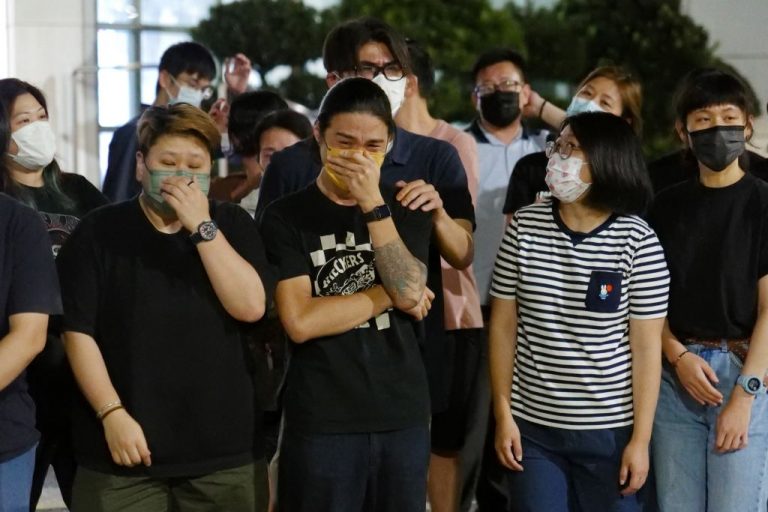July 1, 2021, was the 24th anniversary of the UK’s handover of Hong Kong, which ended the 156-year British occupation of the region. June 30, 2021, marked one year since China imposed the National Security Law in Hong Kong, placing the city under the control of the Chinese Communist Party (CCP). The British government has been facing increasing pressure to challenge the CCP’s chokehold on Hong Kong.
In an interview with Breitbart, Benedict Rogers, the chairman of Hong Kong, applauded the UK for its “generous visa policy” for Hongkongers. However, Rogers stressed that the move neither changes the situation on the ground for millions of people living in the region nor holds the communist regime “accountable for destroying Hong Kong’s freedoms.” Though London has issued “strong statements” in the past, statements alone are not enough.
After the National Security Law was enacted, Britain announced a new visa scheme beginning January 31st allowing Hong Kong residents with British National Overseas (BNO) passports to settle in the UK. In the first three months of 2021, Britain received 34,000 visa applications from Hong Kong, compared to just 5,354 applications from the EU.
“The time has come for real action, coordinated with as many allies around the world as possible – robust, targeted sanctions against those in the regime in Beijing and Hong Kong responsible for the dismantling of Hong Kong’s freedoms and autonomy and breaking promises made in an international treaty,” Rogers said to Breitbart.
A group of British Members of Parliament (MPs) recently wrote a letter to Foreign Secretary Dominic Raab, asking the government to impose sanctions on Chinese officials involved in the crackdown on Hong Kong. They stated that Beijing is “moving ruthlessly” to dismantle Hong Kong’s society, restricting the rights and freedoms of its people, and interpreting laws arbitrarily. The sanctions are “a very effective tool to hold them accountable,” such as the Chief Executive of Hong Kong, Carrie Lam.
Success
You are now signed up for our newsletter
Success
Check your email to complete sign up
In a June 30 report published by Amnesty International, Yamini Mishra, the organization’s Asia-Pacific Regional Director, stated that Hong Kong is “on a rapid path to becoming a police state” in just one year under the National Security Law. The law allows the administration to arrest pro-democracy and free speech activists on charges of subversion, colluding with foreign forces, and so on.
“From politics to culture, education to media, the law has infected every part of Hong Kong society and fomented a climate of fear that forces residents to think twice about what they say, what they tweet, and how they live their lives,” Mishra said in a statement.
At a Hong Kong freedom protest held in London on June 12, Labor MP Stephen Kinnock accused the UK government of being “naïve and complacent” in its dealings with China. He stated that the global community will have to take a “far more robust” approach when it comes to challenging Beijing’s aggressive moves.
“They thought they opened the doors to China and in return, we would see China aligning with international norms, human rights, and standards. The opposite has happened,” Kinnock stated.
Prime Minister Boris Johnson has sought to establish economic ties with Beijing in the aftermath of Brexit, looking forward to a massive UK-China trade deal. In a meeting with Chinese businessmen in February, Johnson claimed to be “fervently Sinophile” and said that he is determined to improve ties “whatever the occasional political differences.”
In an April motion in the House of Commons seeking to declare Beijing’s persecution of the Uyghur community as genocide, the government opposed the motion, with none of the ruling ministers voting for it.
On June 25, Beijing appointed security chief John Lee to oversee enforcement of the National Security Law in Hong Kong. He is now the second-highest-ranking official in the Hong Kong administration.
In an interview with The Epoch Times, Chen Kuide, a China scholar and editor-in-chief of the magazine China in Perspective, said Beijing is “rapidly transforming Hong Kong into another mainland Chinese city, with even tighter controls in some parts… Hong Kong is getting darker.”

















